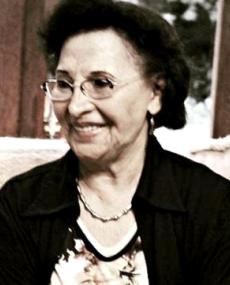
Executive member of the Textile Workers Union in Port Elizabeth, founder member of the South African Congress of Trade Union (SACTU), full-time organiser of the Coloured People’s Congress in Johannesburg, a leader of the 1956 women
Sophia Theresa Williams-de Bruyn was born in 1938, in Villageboard, a mixed area that had different nationalities living side by side. She was raised in the home of her grandparents with her older brother and sister. When her grandparents died, her father, Henry Ernest Williams bought property at number 17 Thumbler Street, in Villageboard with his older brother. She started primary schooling in the Villageboard and went on to attend the Saint Patrick Catholic School in the North-end Port Elizabeth. When her father joined the army to fight in World War II, Sophia’s mother Frances Elizabeth moved out of the family house with the children to a new housing development, specifically built for ‘Coloured people’ called Schauder. Sophia attended the local Saint James Catholic School, where she continued with her primary education.
During her higher primary education, Sophia started working during the school vacations so she could have pocket money when school terms started. As she was doing this almost every school term, the workers at Van Lane Textile factory singled her out to solve their problems with factory bosses. She later became Shop steward, and increased her involvement in representing and articulating the grievances of the workers. She continued working in the factory and never returned to school. At the Textile factory she rose to become an executive member of the Textile Workers Union in Port Elizabeth working alongside people like Raymond Mhlaba, the late Vuyisile Mini, Govan Mbeki and others.
She became the founder member of the South African Congress of Trade Union (SACTU), which is the predecessor of the Congress of South African Trade Union (COSATU). Her trade union work interacted with mainstream political movements of the day, such as the African National Congress (ANC). The Congress alliance (Indian Congress and the ANC) at the time was grappling with issues such as the Group Areas Act, Separate Development Act and the Bantu Education Act. It was then that the ‘Coloured People Congress’ was formed.
In 1955 Sophia was appointed as a full-time organiser of the ‘Coloured People’s Congress’ in Johannesburg. The African National Congress and the Transvaal Indian Congress had offices in the basement of the Market Theater and they gave the Coloured People Congress office space in the same basement.
When the Coloured Population Act was put forward, Sophia was assigned by the Congress to work with the lawyer Shulamuth Muller, an attorney whose husband, Mike Muller, was secretary-general of the Textile Workers Union and was already banned. Together they helped to organize the women around pass issues with women such as Helen Joseph, Lillian Ngoyi and Rahima Moosa. At the same time Sophia was at the forefront of the Congress Of the People in Kliptown. She led the Women’s March to the Union Buildings in 1956 and is the only surviving leader of the historical event. She currently serves as a human resources manager and a commissioner at the Commission for Gender Equality. She is a member of the National Executive Committee of the ANC Women’s League and is a member of the Saartjie Baartman Reference Group.